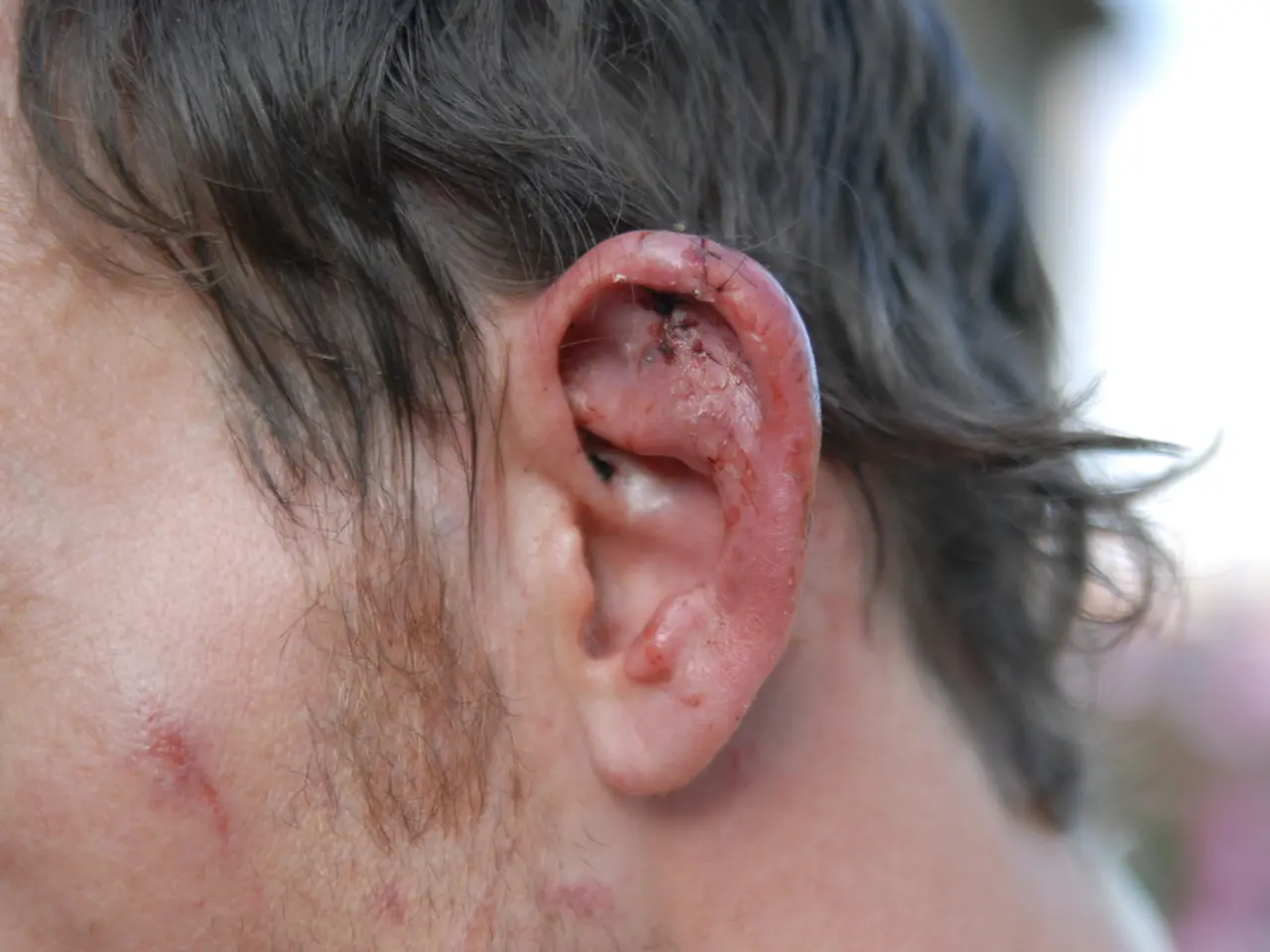Methods for Analyzing Toxins in a Corpse
## Unravelling Mysteries with Forensic Toxicology: A Closer Look at Death Investigations
In the realm of death investigations, forensic toxicology plays an integral role in uncovering the presence of drugs, alcohol, and toxic substances within the deceased's body. This vital analysis helps determine whether these substances played a part in the death, whether it was natural, accidental, or intentional.
### Forensic Toxicology: A Powerful Tool in Death Investigations
Forensic toxicologists employ sophisticated techniques such as gas chromatography-mass spectrometry (GC-MS) and immunoassays to analyse biological samples like blood, urine, and tissues. These methods enable the identification of specific toxins and the quantification of their concentrations, which can support conclusions about the role of toxic substances in the death.
### A Closer Look at the Chain of Custody
The chain of custody, a meticulous process that governs the handling and storage of evidence from the crime scene to the courtroom, is of paramount importance in forensic toxicology. Maintaining an unbroken chain of custody ensures the integrity and reliability of the evidence presented in court.
### The Importance of a Well-Documented Chain of Custody
A well-documented chain of custody serves several purposes:
1. **Evidence Integrity**: It ensures that biological samples are correctly collected, stored, analysed, and reported without contamination or tampering, safeguarding the accuracy of toxicology results.
2. **Legal Admissibility**: Proper chain of custody documentation is necessary for the legal admissibility of toxicology evidence in court. Any break in the chain can lead to the exclusion of evidence, potentially undermining the case.
3. **Credibility**: It supports the credibility of forensic experts and their findings, helping to build a strong case in court.
### The Role of Forensic Toxicology in Poisoning Investigations
The examination and detection of various poisons and their identification are crucial in forensic toxicology. Blood samples are collected to determine the levels of toxins in the bloodstream, aiding in estimating the amount of poison consumed, the poison's effects, and the time of death.
In cases where an autopsy was not conducted promptly or if the blood, liver, or stomach sample was unsuitable for testing, alternative methods may be used to determine the presence of poisons. Hair samples, for instance, can reveal long-term exposure to toxins or medications, as concentrations of these substances can be detected in the hair shaft.
In some instances, preservatives are used for different poisoning samples in forensic science. It is essential to collect samples before administering any medication or treatment to avoid influencing the outcome of the toxicological report.
### The Scope of Forensic Toxicology
Forensic toxicology is a branch of forensic science that integrates principles and practices of toxicology and legal aspects for medicolegal instances. It is used in cases of homicide, suicide, road traffic, and other types of investigations, making it a significant part of forensic science.
The degree of decomposition might alter the results of blood testing, making the time of death an important factor in this process. It is crucial to consider the time elapsed since death when interpreting toxicology results.
Urine does not provide much information about the timing of toxin consumption, but it does show that the chemical was consumed some time ago. Despite this limitation, urine is a reliable sample for detecting the presence of drugs and toxins in the body.
In summary, forensic toxicology is an indispensable tool in death investigations, helping to determine the presence of toxins and poisons, while the chain of custody is vital for ensuring the reliability and legal admissibility of toxicology evidence in court proceedings.
- In forensic toxicology, blood spatter analysis, along with urine and tissue samples, assists in identifying specific toxins and quantifying their concentrations, which can reveal the role of toxic substances in the death.
- A well-documented chain of custody in forensic toxicology is essential for maintaining the integrity and reliability of evidence, ensuring legal admissibility, and bolstering the credibility of forensic experts and their findings.
- Integration of health-and-wellness information, including medical-conditions and therapies-and-treatments, is crucial to consider when interpreting toxicology results, as they can influence the outcome of poisoning investigations.
- Forensic toxicology extends its scope beyond death investigations, providing invaluable insight in cases of homicide, suicide, road traffic, and other types of investigations, thereby consolidating its position as a significant discipline within forensic science.




